Did you know that Swiss chard is considered one of the most nutrient-rich greens in the world? This garden vegetable, often overlooked in favor of popular leafy greens like kale, packs a powerful punch when it comes to culinary uses and health benefits. If you’re looking for an easy-to-grow superfood that can elevate your meals and support your overall wellbeing, Swiss chard is the answer.
Key Takeaways:
- Swiss chard is a nutrient-rich superfood with numerous health benefits.
- It is low in calories but high in essential vitamins, minerals, and antioxidants.
- Swiss chard supports heart health, helps regulate blood pressure and blood sugar levels, and aids in weight loss.
- It promotes bone health, thanks to its vitamin K and calcium content.
- Swiss chard can assist in diabetic management and potentially boost athletic performance.
What is Swiss Chard?
Swiss chard, a leafy green vegetable, belongs to the Chenopodioideae family, which also includes beets and spinach. Contrary to its name, Swiss chard is not native to Switzerland but actually originated in the Mediterranean region. This vibrant vegetable is renowned for its ability to thrive in poor soils and withstand challenging growing conditions, requiring less water and light compared to other vegetables. Swiss chard comes in different varieties, some of which boast colorful stalks and veins, adding an aesthetic appeal to any dish.
“Swiss chard, a versatile and visually appealing leafy green from the Mediterranean.”
| Key Facts about Swiss Chard | |
|---|---|
| Family | Chenopodioideae |
| Origin | Mediterranean region |
| Growing Conditions | Poor soils, less water and light |
| Varieties | Colorful stalks and veins |
Swiss chard, with its rich color and exceptional adaptability, is an enticing addition to any plate. Let’s explore the health benefits, nutritional profile, and delicious culinary uses of this versatile leafy green.
Nutritional Profile of Swiss Chard
Swiss chard is a nutrient powerhouse, packed with vitamins, minerals, and antioxidants. Just 1 cup of cooked Swiss chard provides a range of essential nutrients, including:
| Nutrient | Amount |
|---|---|
| Vitamin K | 572 micrograms (713% DV) |
| Vitamin A | 10,450 IU (209% DV) |
| Vitamin C | 31 milligrams (52% DV) |
| Magnesium | 150 milligrams (37% DV) |
| Copper | 0.21 milligrams (10% DV) |
| Manganese | 0.39 milligrams (20% DV) |
| Iron | 4 milligrams (22% DV) |
| Vitamin E | 3.3 milligrams (17% DV) |
| Potassium | 961 milligrams (18% DV) |
| Calcium | 102 milligrams (10% DV) |
In addition to these nutrients, Swiss chard is also low in calories, making it an excellent choice for maintaining a healthy weight. The abundance of nutrients in Swiss chard contributes to its numerous health benefits.
I love adding Swiss chard to my meals not only for its amazing flavor but also for its incredible nutritional value. It’s truly a powerhouse of vitamins, minerals, and antioxidants that support overall health and well-being.
Health Benefits of Swiss Chard
Swiss chard is a nutritional powerhouse that offers an array of health benefits. Its high antioxidant content, including beta-carotene, flavonoids, and polyphenols, helps protect the body against oxidative stress and inflammation, both of which are associated with various chronic diseases.
Studies have shown that Swiss chard can support heart health by lowering blood pressure and cholesterol levels. Its significant fiber content also aids in blood sugar regulation and weight loss, making it a valuable addition to a balanced diet.
By consuming Swiss chard regularly, you can benefit from its abundance of vitamins, minerals, and antioxidants, promoting overall well-being and vitality.
Antioxidants for a Healthy Body
The antioxidants found in Swiss chard help combat harmful free radicals in the body, protecting against cellular damage and reducing the risk of chronic diseases. Beta-carotene, a prominent antioxidant in Swiss chard, is converted into vitamin A in the body and plays a crucial role in maintaining healthy vision and a robust immune system.
Swiss chard’s rich antioxidant profile ensures a healthy body and reduces the risk of chronic diseases.Trust me, your body will thank you!
Heart Health and Blood Pressure Regulation
Swiss chard’s ability to lower blood pressure and cholesterol levels contributes to a healthy heart. The vegetable’s high potassium content helps relax blood vessels, reducing strain on the cardiovascular system. Additionally, the leafy green’s fiber and magnesium content further supports heart health, promoting optimal cardiovascular function.
Blood Sugar Regulation and Weight Loss
The high fiber content in Swiss chard aids in stabilizing blood sugar levels by slowing the absorption of glucose. This is particularly beneficial for individuals with diabetes or those looking to manage their blood sugar levels. Furthermore, Swiss chard’s low calorie and high nutrient density make it an excellent food for weight loss and weight management.
Swiss chard’s fiber-rich composition makes it an ideal choice for blood sugar regulation and maintaining a healthy weight.Add it to your plate for a nutritious and delicious meal!
Incorporating Swiss chard into your diet can have a positive impact on your overall health and well-being. Its abundant antioxidants, along with its heart health benefits, blood sugar regulation properties, and potential for weight loss, make it a valuable addition to any nutritious meal plan.
Promoting Bone Health with Swiss Chard
When it comes to keeping your bones strong and healthy, Swiss chard is a fantastic addition to your diet. This nutrient-packed leafy green is not only delicious but also provides essential vitamins and minerals that support bone health.
Vitamin K, found abundantly in Swiss chard, plays a crucial role in bone formation and maintenance. It aids in the production of osteocalcin, a protein necessary for proper bone development. Consuming adequate amounts of vitamin K has been associated with a reduced risk of osteoporosis and fractures.
But vitamin K is not the only bone-supporting nutrient found in Swiss chard. This leafy green also contains calcium, another vital mineral for maintaining strong and healthy bones. Calcium is known for its role in bone structure, helping to provide strength and prevent conditions like osteoporosis.
By incorporating Swiss chard into your meals, you can give your bones the support they need to stay healthy and strong. Whether enjoyed in a salad, sautéed, or added to soups and stews, Swiss chard is a versatile and flavorful way to boost your bone health.
| Benefits of Swiss Chard for Bone Health | Vitamins and Minerals |
|---|---|
| Supporting bone formation and maintenance | Vitamin K, calcium |
| Reducing the risk of osteoporosis | Vitamin K, calcium |
| Preventing fractures | Vitamin K |
Supporting Diabetic Management with Swiss Chard
Swiss chard is a versatile vegetable that not only offers a range of health benefits but can also be beneficial for individuals with diabetes. One of the key components in Swiss chard that may support diabetic management is alpha-lipoic acid, an antioxidant that has shown promising effects on blood sugar regulation and insulin sensitivity.
Studies suggest that consuming foods rich in alpha-lipoic acid, like Swiss chard, may help manage diabetes and prevent complications associated with the condition. Alpha-lipoic acid has been shown to improve blood sugar control by increasing insulin sensitivity, allowing cells to better utilize glucose for energy.
In addition to its alpha-lipoic acid content, Swiss chard also contains dietary fiber, which further aids in maintaining stable blood sugar levels. The fiber in Swiss chard slows down the digestion and absorption of carbohydrates, preventing rapid spikes in blood sugar levels.
To incorporate Swiss chard into a diabetic meal plan, consider adding it as a side dish or including it in your favorite recipes. Sautéed Swiss chard with garlic and olive oil makes a delicious and nutritious accompaniment to any meal. Alternatively, you can use Swiss chard as a substitute for other greens in salads or stir-fries.
Overall, including Swiss chard in your diet can be a beneficial step towards managing diabetes and promoting overall health. Its alpha-lipoic acid content and high fiber content make it a nutritious choice for individuals looking to regulate blood sugar levels and support their diabetic management.
Benefits of Swiss Chard for Diabetic Management:
- Contains alpha-lipoic acid, which improves blood sugar regulation and increases insulin sensitivity
- Rich in dietary fiber, aiding in stable blood sugar levels
- Versatile vegetable that can be incorporated into various dishes
- Nutrient-packed and low in calories, supporting overall health
Boosting Athletic Performance with Swiss Chard
Sports and athletic performance require optimal nutrition to help athletes perform at their best. One often overlooked powerhouse vegetable that can provide a natural boost is Swiss chard. This leafy green is not only packed with essential nutrients but also contains dietary nitrates that have been linked to improved muscle oxygenation during exercise.
Research suggests that consuming Swiss chard, rich in dietary nitrates, can enhance exercise tolerance and performance, especially in endurance exercises. Dietary nitrates are converted to nitric oxide in the body, which helps relax blood vessels, improving blood flow and oxygen delivery to muscles. This can result in better endurance, reduced fatigue, and improved overall athletic performance.
While more research is needed to fully understand the effects of dietary nitrates on athletic performance, adding Swiss chard to your diet can be a natural and nutritious way to potentially enhance cardiovascular performance. Its nutrient density and unique benefits make Swiss chard a valuable addition to any athlete’s diet.
| Benefits of Swiss Chard for Athletic Performance |
|---|
| Enhanced muscle oxygenation during exercise |
| Improved exercise tolerance |
| Potential reduction in fatigue |
| Increased endurance |
| Promotion of overall cardiovascular health |
As an athlete, incorporating Swiss chard into your diet can be as easy as adding it to salads, smoothies, or incorporating it into main dishes. Its mild and slightly earthy flavor pairs well with a variety of ingredients, making it a versatile option for nutrition-conscious athletes.
“Adding Swiss chard, with its dietary nitrates, to your training regimen can potentially boost your athletic performance naturally. The combination of essential nutrients and unique benefits makes Swiss chard an excellent choice for athletes looking to optimize their performance.”
Culinary Uses of Swiss Chard
Swiss chard is a versatile vegetable that can elevate your culinary creations with its unique flavors and textures. Whether you’re a seasoned chef or just starting your culinary journey, Swiss chard can be a delightful addition to your recipes. Here are some cooking tips and culinary uses to inspire your creativity in the kitchen.
1. Sautéed Swiss Chard
Add a touch of elegance to your dishes by sautéing Swiss chard with garlic and olive oil. The earthy flavor of Swiss chard pairs beautifully with the aromatic garlic, and a drizzle of olive oil adds a touch of richness. This simple cooking technique can be used as a side dish or a flavorful base for your main course.
2. Boiled Swiss Chard
Boiling Swiss chard is another excellent cooking method that retains its vibrant colors and tender texture. Blanch the Swiss chard leaves in boiling water for a few minutes until they are bright and tender. Drain and season with salt and pepper for a simple and nutritious side dish.
3. Braised Swiss Chard
Braising Swiss chard is a delicious way to infuse it with flavors and create a savory dish. Start by searing the Swiss chard in a hot pan with olive oil, then add broth or a combination of broth and vinegar. Allow it to simmer slowly until the Swiss chard is tender and infused with the flavors of the braising liquid.
4. Swiss Chard in Soups and Casseroles
Swiss chard adds depth and nutrition to soups and casseroles. Whether you’re making a hearty vegetable soup or a comforting casserole, Swiss chard can be a nutritious and flavorful addition. Chop the Swiss chard leaves and stems into bite-sized pieces and add them to your favorite recipes for an extra dose of vitamins and minerals.
5. Swiss Chard in Stir-Fries
Add a burst of color and flavor to your stir-fries by incorporating Swiss chard. Its hearty leaves and tender stems can withstand the heat of a stir-fry, adding both texture and taste to your dish. Combine Swiss chard with other vegetables, protein, and your favorite sauce for a quick and nutritious meal.
6. Raw Swiss Chard in Salads
Don’t limit Swiss chard to cooked preparations; it can be enjoyed raw in salads. The slightly earthy taste and crispy texture of Swiss chard leaves bring a refreshing element to salads. Simply wash and chop the Swiss chard leaves, toss them with your favorite dressing, and include them in your salad mix for a vibrant and nutritious twist.
7. Swiss Chard as a Filling
Get creative with Swiss chard by using it as a filling for sandwiches, wraps, or even stuffed pastas. Sauté the Swiss chard with other ingredients like mushrooms, onions, or cheese, and use it as a delicious filling in your favorite bread or pasta recipes. This adds a burst of flavor and nutrients to your meals.
Incorporating Swiss chard into your cooking repertoire opens up a world of culinary possibilities. Its mild and slightly earthy flavor complements a variety of ingredients and cooking techniques. Experiment with these culinary uses of Swiss chard and let your creativity flourish in the kitchen!
Growing Tips for Swiss Chard
Swiss chard is a wonderful vegetable to grow in your home garden. It is relatively easy to cultivate and offers a bountiful harvest of nutritious leaves. Whether you have a large garden or a small patio, Swiss chard can be a rewarding addition to your vegetable patch. Here are some gardening tips to help you successfully grow Swiss chard:
Planting Swiss Chard
- Swiss chard thrives in a variety of climates, making it suitable for gardens across the United States. It can handle both cool and warm temperatures.
- You can directly sow Swiss chard seeds in the ground or start with transplants.
- Choose a spot with well-draining soil and ample sunlight. Swiss chard can tolerate partial shade, but it performs best in full sun.
- If you have limited space, you can grow Swiss chard in containers or raised beds.
Soil Preparation
- Prepare the soil by removing any weeds and loosening it with a garden fork or tiller.
- Amend the soil with compost or well-rotted manure to improve fertility and drainage.
- Swiss chard prefers slightly acidic to neutral soil with a pH range of 6.0 to 7.0.
Watering and Maintenance
- Keep the soil consistently moist but not waterlogged. Water Swiss chard deeply once or twice a week, depending on the weather.
- Avoid wetting the leaves when watering, as this can increase the risk of disease.
- Apply a layer of mulch around the plants to help retain moisture and suppress weeds.
- Regularly remove any yellowing or damaged leaves to promote new growth.
Harvesting
- You can start harvesting Swiss chard leaves when they are around 6-8 inches long.
- Harvest the outer leaves by cutting them near the base of the plant, leaving the inner leaves to continue growing.
- Regular harvesting of the outer leaves encourages continuous production throughout the growing season.
By following these gardening tips, you can enjoy a plentiful supply of Swiss chard from your own home garden. Experiment with different Swiss chard varieties and savor the fresh, nutrient-rich leaves in a variety of culinary creations.
Conclusion
Swiss chard is truly a superfood that offers a multitude of health benefits. With its impressive array of vitamins, minerals, and antioxidants, this leafy green vegetable can contribute to heart health, blood pressure regulation, blood sugar control, and even weight loss. Incorporating Swiss chard into your diet is as easy as incorporating it into various recipes and culinary preparations, allowing you to savor its delicious taste while reaping its health rewards.
Whether you choose to grow your own Swiss chard in your home garden or purchase it from your local store, this nutrient-dense vegetable can have a positive impact on your overall wellbeing. From sautéing it in a stir-fry to adding it to a salad or soup, the versatility of Swiss chard makes it a delightful addition to any meal.
So why not give Swiss chard a try? Explore the numerous recipes available and let this powerhouse vegetable become a staple in your kitchen. From its vibrant and colorful leaves to its remarkable health benefits, Swiss chard is a culinary treasure that can enhance both your enjoyment of food and your overall health.

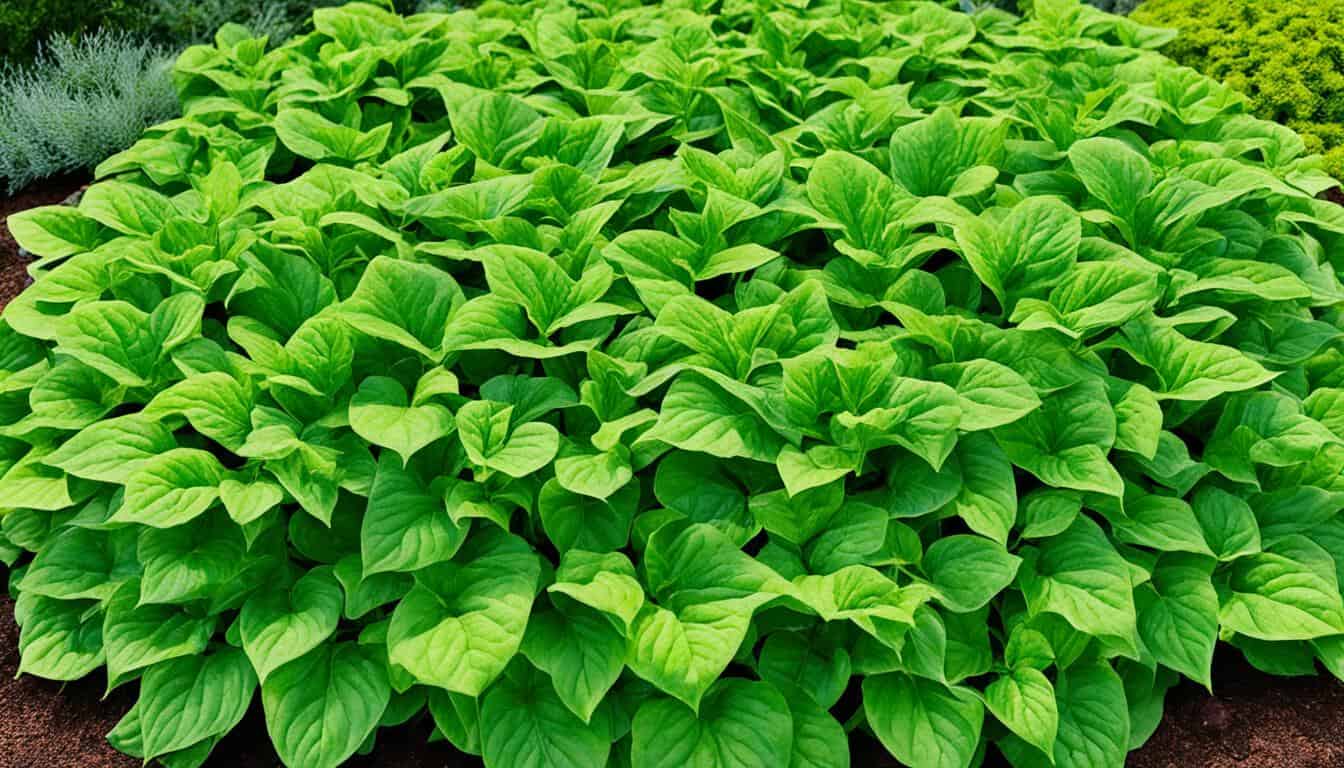
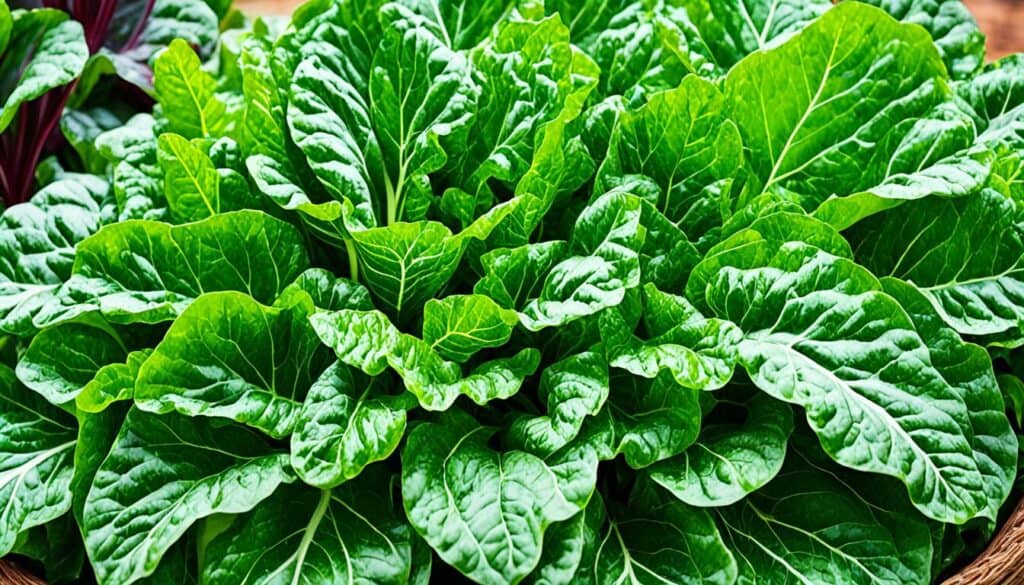
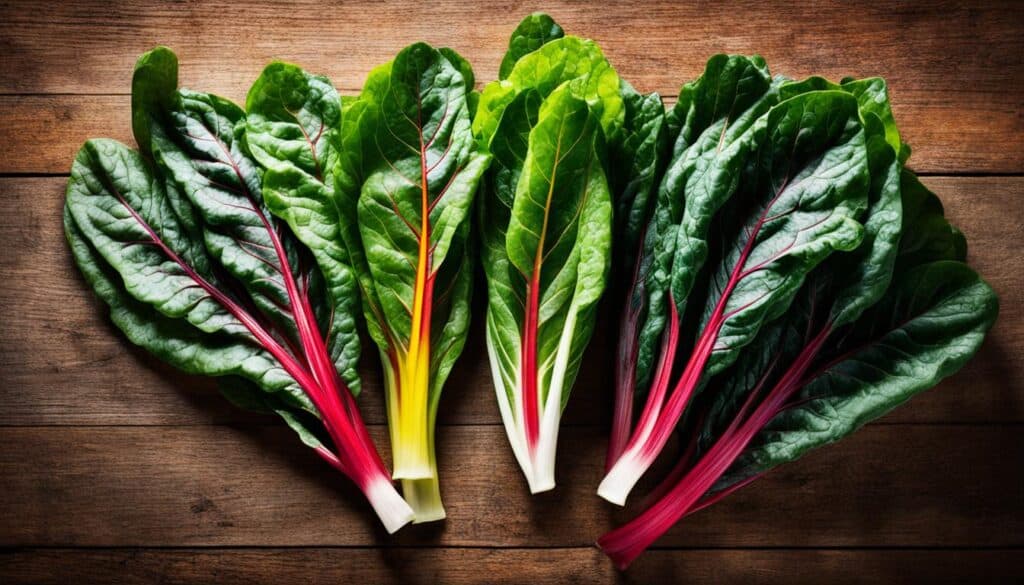

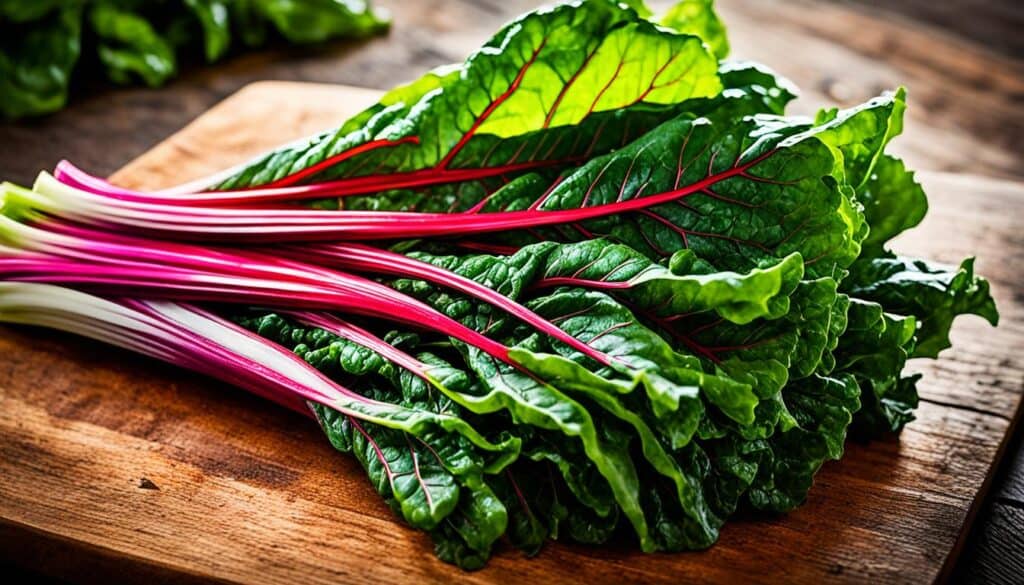
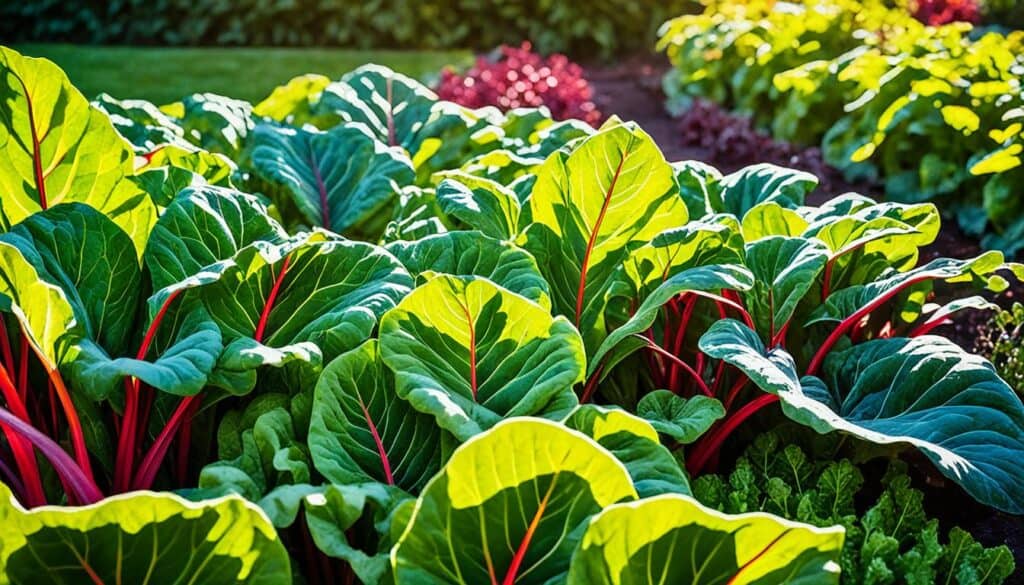



Leave a Reply